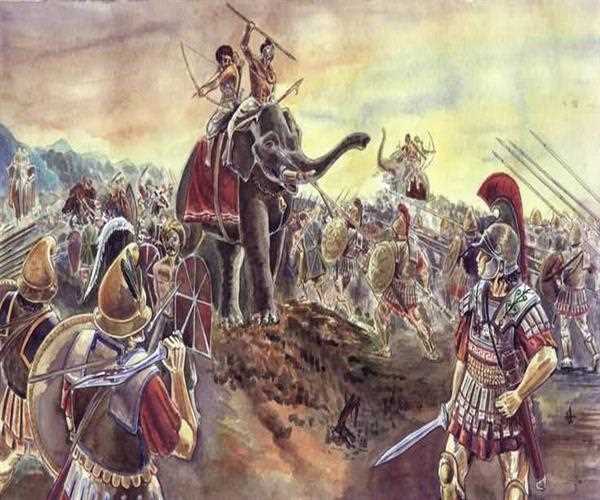Your writing is really informative, especially because it's so meaningful and updated. Thanks for sharing this wonderful post!
Your writing is really great. I’m so glad I read it. It kept me hooked the whole way through.
Who defeated Alexander in India?
Your writing is really informative, especially because it's so meaningful and updated. Thanks for sharing this wonderful post!
Your writing is really great. I’m so glad I read it. It kept me hooked the whole way through.
In 326 BCE an imposing European armed force attacked India. Driven by Alexander of Macedon it involved fight solidified Macedonian troopers, Greek mounted force, Balkan warriors and Persians partners. The aggregate number of battling men numbered more than 41,000.

Their most noteworthy conflict was at the Battle of Hydaspes (Jhelum) against the armed force of Porus, the leader of the Paurava kingdom of western Punjab. For over 25 centuries it was trusted that Alexander's powers vanquished the Indians. Greek and Roman records say the Indians were bested by the predominant mettle and stature of the Macedonians.
Zhukov's perspective of Alexander
In 1957, while tending to the cadets of the Indian Military Academy, Dehra Dun, Zhukov said Alexander's activities after the Battle of Hydaspes recommend he had endured a through and through annihilation. In Zhukov's view, Alexander had endured a more prominent misfortune in India than Napoleon in Russia. Napoleon had attacked Russia with 600,000 troops; of these lone 30,000 survived, and of that number less than 1,000 were ever ready to come back to obligation.
Alexander's inconveniences started when he crossed the Indian fringe. The Assakenoi concurred; the old ruler was excessively trusting. That night when the nationals of Massage had headed out to rest after their festivals, Alexander's troops entered the city and slaughtered the whole citizenry. A comparable butcher at that point took after at Ora.
Faceoff at the waterway
In his whole vanquishing profession Alexander's hardest experience was the Battle of Hydaspes, in which he confronted ruler Porus of Paurava, a little yet prosperous Indian kingdom on the waterway Jhelum. From every angle, it was a remarkable exhibition. The 34,000 Macedonian infantry and 7000 Greek mounted force were supported by the Indian ruler Ambhi, who was Porus' opponent.
Confronting this turbulent power drove by the virtuoso of Alexander was the Paurava armed force of 20,000 infantry, 2000 rangers and 200 war elephants. Being a similarly little kingdom by Indian models, Paurava couldn't have kept up such an extensive standing armed force, so it's imaginable a large number of its safeguards were quickly furnished, regular citizens. Likewise, the Greeks constantly misrepresented adversary quality.
Indians strike
The fight was viciously battled. A portion of the creatures got skewered all the while. At that point, the second floor of these powerful brutes raced into the hole made by the primary, either stomping the Macedonian fighters or getting them by their trunks and exhibiting them up for the mounted Indian officers to cut or lance them. It was a nightmarish situation for the intruders. As the startled Macedonians pushed back, the Indian infantry raced into the hole.
In the primary charge, by the Indians, Porus' sibling Amar murdered Alexander's most loved steed Bucephalus, constraining Alexander to get off. This was a major ordeal. In fights outside India, the first class Macedonian guardians had not permitted a solitary aggressor to convey to such an extent as a scratch on their ruler's body, not to mention kill his mount.
To be sure, on the opposite side of the Ganges was the compelling kingdom of Magadh, governed by the wily Nandas, who instructed a standout amongst the most ground-breaking and biggest standing armed forces on the planet. On its route south towards the ocean, Alexander's armed force was always harried by Indian partisans, republics, and kingdoms.
In a battle at Sangala in Punjab, the Indian assault was so fierce it totally pulverized the Greek mounted force, driving Alexander to assault by walking. Alexander never recuperated and kicked the bucket in Babylon 33 years old.